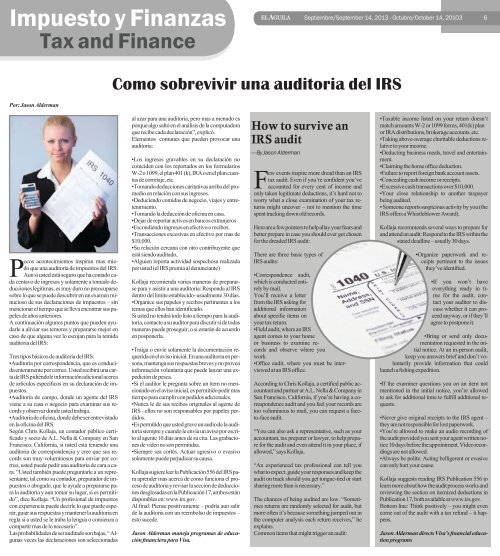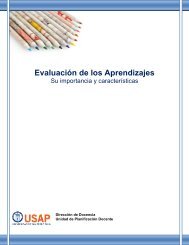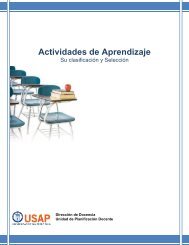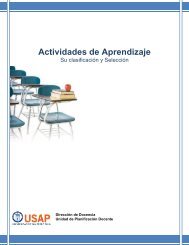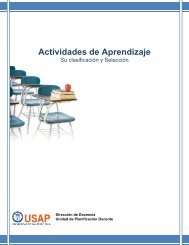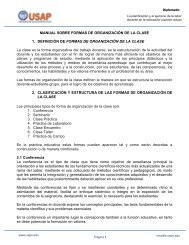You also want an ePaper? Increase the reach of your titles
YUMPU automatically turns print PDFs into web optimized ePapers that Google loves.
Impuesto y Finanzas<br />
Tax and Finance<br />
Por: Jason Alderman<br />
Pocos acontecimientos inspiran mas miedo<br />
que una auditoria de impuestos del IRS.<br />
Aun si usted está seguro que ha contado cada<br />
centavo de ingresos y solamente a tomado deducciones<br />
legitimas, es muy duro no preocuparse<br />
sobre lo que se puede descubrir en un examen minucioso<br />
de sus declaraciones de impuestos – sin<br />
mencionar el tiempo que se lleva encontrar sus papeles<br />
de años anteriores.<br />
A continuación algunos puntos que pueden ayudarle<br />
a aliviar sus temores y prepararse mejor en<br />
caso de que alguna vez lo escojan para la temida<br />
auditoria del IRS:<br />
Tres tipos básicos de auditoria del IRS:<br />
•Auditoria por correspondencia, que es conducida<br />
enteramente por correo. Usted recibirá una carta<br />
de IRS pidiéndole información adicional acerca<br />
de artículos específicos en su declaración de impuestos.<br />
•Auditoria de campo, donde un agente del IRS<br />
viene a su casa o negocio para examinar sus records<br />
y observar donde usted trabaja.<br />
•Auditoria de oficina, donde debe ser entrevistado<br />
en la oficina del IRS.<br />
Según Chris Kollaja, un contador público certificado<br />
y socio de A.L. Nella & Company en San<br />
Francisco, California, si usted está teniendo una<br />
auditoria de correspondencia y cree que sus records<br />
son muy voluminosos para enviar por correo,<br />
usted puede pedir una auditoria de cara a cara.<br />
“Usted también puede preguntarle a un representante,<br />
tal como su contador, preparador de impuestos<br />
o abogado, que le ayude a prepararse para<br />
la auditoria y aun tomar su lugar, si es permitido”,<br />
dice Kollaja. “Un profesional de impuestos<br />
con experiencia puede decirle lo que puede esperar,<br />
guiar sus respuestas y mantener la auditoria en<br />
regla si a usted se le traba la lengua o comienza a<br />
compartir mas de lo necesario”.<br />
Las probabilidades de ser auditado son bajas, “ Algunas<br />
veces las declaraciones son seleccionadas<br />
EL <strong>AGUILA</strong><br />
Como sobrevivir una auditoria del IRS<br />
al azar para una auditoria, pero mas a menudo es<br />
porque algo saltó en el análisis de la computadora<br />
que recibe cada declaración”, explicó.<br />
Elementos comunes que pueden provocar una<br />
auditoria:<br />
•Los ingresos gravables en su declaración no<br />
coinciden con los reportados en los formularios<br />
W-2 o 1099, el plan 401 (k), IRA o en el plan cuentas<br />
de corretaje, etc.<br />
•Tomando deducciones caritativas arriba del promedio<br />
en relación con sus ingresos.<br />
•Deduciendo comidas de negocio, viajes y entretenimiento.<br />
•Tomando la deducción de oficina en casa.<br />
•Dejar de reportar activos en bancos extranjeros<br />
•Escondiendo ingresos en efectivo o recibos.<br />
•Transacciones excesivas en efectivo por mas de<br />
$10,000.<br />
•Su relación cercana con otro contribuyente que<br />
está siendo auditado,<br />
•Alguien reporta actividad sospechosa realizada<br />
por usted (el IRS premia al denunciante)<br />
Kollaja recomienda varias maneras de prepararse<br />
para y asistir a una auditoria: Responda al IRS<br />
dentro del limite establecido- usualmente 30 días.<br />
•Organice sus papeles y recibos pertinentes a los<br />
temas que ellos han identificado.<br />
Si usted no tendrá todo listo a tiempo para la auditoria,<br />
contacte a su auditor para discutir si de todas<br />
maneras puede proseguir, o si estarán de acuerdo<br />
en posponerla.<br />
•Traiga o envíe solamente la documentación requerida<br />
en el aviso inicial. En una auditoria en persona,<br />
mantenga sus respuestas breves y no provea<br />
información voluntaria que puede lanzar una expedición<br />
de pesca.<br />
•Si el auditor le pregunta sobre un ítem no mencionado<br />
en el aviso inicial, es permitido pedir mas<br />
tiempo para cumplir con pedidos adicionales.<br />
•Nunca le de sus recibos originales al agente de<br />
IRS –ellos no son responsables por papeles perdidos.<br />
•Es permitido que usted grave un audio de la auditoria<br />
siempre y cuando le envía un aviso por escrito<br />
al agente 10 días antes de su cita. Las grabaciones<br />
de video no son permitidas.<br />
•Siempre sea cortés. Actuar agresivo o evasivo<br />
solamente puede perjudicar su causa.<br />
Kollaja sugiere leer la Publicación 556 del IRS para<br />
aprender mas acerca de como funciona el proceso<br />
de auditoria y revisar la sección de deducciones<br />
desglosadas en la Publicación 17, ambos están<br />
disponibles en: www.irs.gov.<br />
Al final: Piense positivamente – podría aun salir<br />
de la auditoria con un reembolso de impuestos –<br />
esto sucede.<br />
Jason Alderman maneja programas de educación<br />
financiera para Visa.<br />
How to survive an<br />
IRS audit<br />
----By Jason Alderman<br />
Few events inspire more dread than an IRS<br />
tax audit. Even if you’re confident you’ve<br />
accounted for every cent of income and<br />
only taken legitimate deductions, it’s hard not to<br />
worry what a close examination of your tax returns<br />
might uncover – not to mention the time<br />
spent tracking down old records.<br />
Here are a few pointers to help allay your fears and<br />
better prepare in case you should ever get chosen<br />
for the dreaded IRS audit:<br />
There are three basic types of<br />
IRS audits:<br />
•Correspondence audit,<br />
which is conducted entirely<br />
by mail.<br />
You’ll receive a letter<br />
from the IRS asking for<br />
additional information<br />
about specific items on<br />
your tax return.<br />
•Field audit, where an IRS<br />
agent comes to your home<br />
or business to examine records<br />
and observe where you<br />
work.<br />
•Office audit, where you must be interviewed<br />
at an IRS office.<br />
Septiembre/September 14, 2013 - Octubre/October 14, 20103 6<br />
According to Chris Kollaja, a certified public accountant<br />
and partner at A.L. Nella & Company in<br />
San Francisco, California, if you’re having a correspondence<br />
audit and you feel your records are<br />
too voluminous to mail, you can request a faceto-face<br />
audit.<br />
“You can also ask a representative, such as your<br />
accountant, tax preparer or lawyer, to help prepare<br />
for the audit and even attend it in your place, if<br />
allowed,” says Kollaja.<br />
“An experienced tax professional can tell you<br />
what to expect, guide your responses and keep the<br />
audit on track should you get tongue-tied or start<br />
sharing more than is necessary.”<br />
The chances of being audited are low. “Sometimes<br />
returns are randomly selected for audit, but<br />
more often it’s because something jumped out in<br />
the computer analysis each return receives,” he<br />
explains.<br />
Common items that might trigger an audit:<br />
•Taxable income listed on your return doesn’t<br />
match amounts W-2 or 1099 forms, 401(k) plan<br />
or IRA distributions, brokerage accounts, etc.<br />
•Taking above-average charitable deductions relative<br />
to your income.<br />
•Deducting business meals, travel and entertainment.<br />
•Claiming the home office deduction.<br />
•Failure to report foreign bank account assets.<br />
•Concealing cash income or receipts.<br />
•Excessive cash transactions over $10,000.<br />
•Your close relationship to another taxpayer<br />
being audited.<br />
• Someone reports suspicious activity by you (the<br />
IRS offers a Whistleblower Award).<br />
Kollaja recommends several ways to prepare for<br />
and attend an audit: Respond to the IRS within the<br />
stated deadline – usually 30 days.<br />
•Organize paperwork and receipts<br />
pertinent to the issues<br />
they’ve identified.<br />
•If you won’t have<br />
everything ready in time<br />
for the audit, contact<br />
your auditor to discuss<br />
whether it can proceed<br />
anyway, or if they’ll<br />
agree to postpone it.<br />
•Bring or send only documentation<br />
requested in the initial<br />
notice. At an in-person audit,<br />
keep you answers brief and don’t voluntarily<br />
provide information that could<br />
launch a fishing expedition.<br />
•If the examiner questions you on an item not<br />
mentioned in the initial notice, you’re allowed<br />
to ask for additional time to fulfill additional requests.<br />
•Never give original receipts to the IRS agent –<br />
they are not responsible for lost paperwork.<br />
•You’re allowed to make an audio recording of<br />
the audit provided you sent your agent written notice<br />
10 days before the appointment. Video recordings<br />
are not allowed.<br />
•Always be polite. Acting belligerent or evasive<br />
can only hurt your cause.<br />
Kollaja suggests reading IRS Publication 556 to<br />
learn more about how the audit process works and<br />
reviewing the section on itemized deductions in<br />
Publication 17, both available at www.irs.gov.<br />
Bottom line: Think positively – you might even<br />
come out of the audit with a tax refund – it happens.<br />
Jason Alderman directs Visa’s financial education<br />
programs


